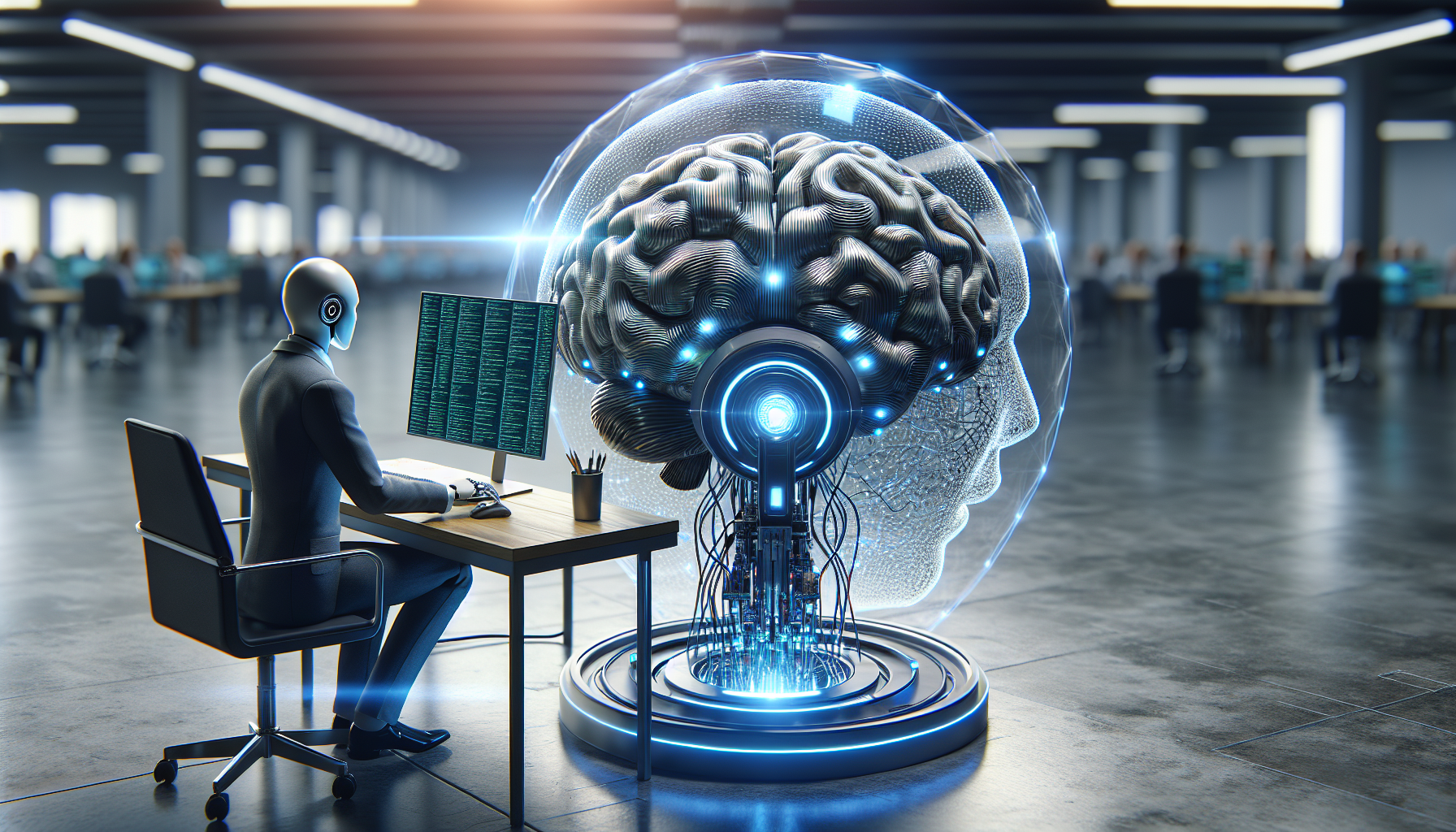
AI in Supply Chain Management: Transforming Operations with Innovative Trends
August 5, 2025
Imagine a world where supply chains operate with the precision of a conductor leading a symphony, each element perfectly in tune with the next. This vision is becoming a reality through the transformative power of artificial intelligence in supply chain management. While the topics of AI and automation may seem cutting-edge, this technology is already reshaping industries, driving efficiency, and inspiring a new wave of innovation in an often-overlooked sector.
Supply chains are the lifeblood of global commerce, connecting producers, suppliers, and consumers across continents. Yet, they are fraught with challenges: unpredictable demand, fluctuating supply, complex logistics, and now, a growing demand for sustainable practices. Enter AI, a game-changer that offers unprecedented solutions to these age-old problems by harnessing data and predictive analytics to optimize every link in the chain.
One of the most remarkable trends in AI-driven supply chain management is the use of predictive analytics. By analyzing patterns and forecasting future trends, AI can anticipate demand with astonishing accuracy, allowing companies to adjust production schedules and manage inventories more effectively. This capability minimizes waste, reduces costs, and ensures that products are available when and where they are needed most. Consider the potential for reducing food waste in supermarkets through AI-powered demand forecasting. Not only does this improve profitability, but it also addresses sustainability concerns—an inspirational alignment of business and environmental goals.
Another exciting trend is the use of AI in logistics and distribution. Traditional supply chains often rely on static route planning, which can be inefficient and costly in dynamic environments. AI, with its ability to process vast amounts of data in real-time, can optimize delivery routes by considering variables such as weather conditions, traffic patterns, and fuel efficiency. This level of optimization reduces delivery times, lowers transportation costs, and minimizes the carbon footprint—a triple win for businesses, consumers, and the planet.
Moreover, AI's ability to enhance transparency and traceability in supply chains is garnering significant attention. Through blockchain technology and AI, companies can track products from their origin to the final consumer, ensuring ethical sourcing and compliance with industry standards. This transparency builds consumer trust and aligns with a growing trend of conscious consumerism, where customers prioritize products that meet their ethical and environmental values. The fusion of AI and blockchain technology not only optimizes operations but also elevates brand reputation, offering an inspirational model for future business practices.
AI is also revolutionizing supplier relationship management by identifying potential risks and opportunities. Machine learning algorithms can analyze supplier performance data to predict disruptions, allowing companies to mitigate risks proactively. This capability is vital in an interconnected world where a single disruption can cascade through the supply chain, causing significant delays and financial losses. By fostering stronger relationships with suppliers and anticipating potential challenges, businesses can create more resilient and robust supply chains.
The integration of AI in supply chain management is not without its challenges. Concerns about data privacy, cybersecurity, and the ethical use of AI are paramount. However, these challenges are not insurmountable. By adopting a responsible approach to AI implementation, businesses can safeguard their operations while unlocking new levels of efficiency and innovation.
As AI continues to evolve, its role in supply chain management will undoubtedly expand. The potential for driverless delivery vehicles, autonomous warehouses, and self-managing supply chains is on the horizon, promising a future where human intervention is minimal, and efficiency is maximized. This vision may seem like science fiction, yet the groundwork is already being laid, inspiring a new generation of thinkers and doers to push the boundaries of what's possible.
In this era of rapid technological advancement, the real question is not whether AI will transform supply chain management, but how quickly and profoundly it will do so. What new opportunities will this create for businesses and society at large? How can companies leverage AI to not only optimize operations but also contribute positively to the world? These are the questions that will drive the next wave of innovation and inspire a future where supply chains are not just efficient but also sustainable and ethical. As we stand on the brink of this transformation, the possibilities are as limitless as they are inspiring.


